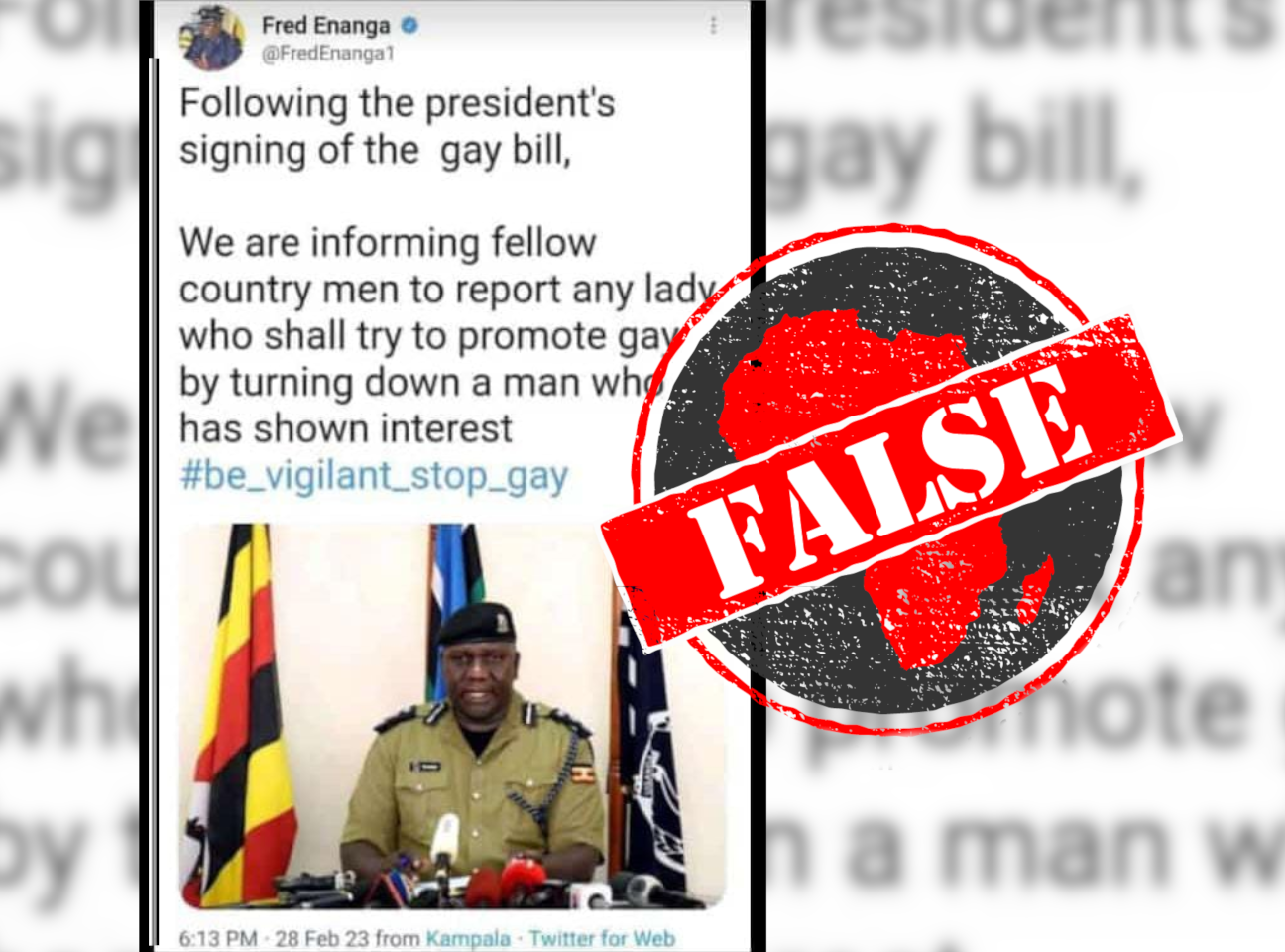IN SHORT: Gay rights are a controversial topic in the East African country, but the police have not threatened to arrest women who turn down men.
What appears to be a screenshot of a tweet by Uganda Police Force (UPF) spokesperson Fred Enanga has been posted on Facebook, saying that women who reject men should be reported.
The tweet reads: “Following the president’s signing of the gay bill, we are informing fellow country men to report any lady who shall try promote gay by turning down a man who shows interest #be_vigilant_stop_gay.”
The tweet includes a photo of Enanga, apparently speaking to the media.
This comes just days after Uganda’s speaker of parliament, Anita Among, announced in a parliamentary session on 28 February 2023 that a bill intended to protect Ugandans from homosexuality would be tabled on 1 March.
Bugiri municipality member of parliament Asuman Basalirwa then re-introduced the bill. It seeks to outlaw any form of sexual relations between people of the same sex and forbid the promotion or recognition of such relationships.
In December 2013, the Ugandan parliament passed the Anti-Homosexuality Act of 2014, but it was later annulled by the court on the grounds that there was not the required quorum of lawmakers to vote on the bill.
In 2021, parliament passed the controversial Sexual Offences Bill, which criminalises same-sex relationships.
This screenshot has been posted here, here, here, here, here, here and here.
But have the police really announced that Ugandan women who refuse advances from men will be arrested for promoting homosexuality? We checked.

Ignore fake tweet
Ugandan president Yoweri Museveni has not signed any bill in relation to homosexuality into law in 2023.
On 1 March, the Ugandan police posted the screenshot on their official Facebook account, dismissing it as “FAKE NEWS”. It was not tweeted by their spokesperson Fred Enanga.
Republish our content for free
For publishers: what to do if your post is rated false
A fact-checker has rated your Facebook or Instagram post as “false”, “altered”, “partly false” or “missing context”. This could have serious consequences. What do you do?
Click on our guide for the steps you should follow.
Publishers guideAfrica Check teams up with Facebook
Africa Check is a partner in Meta's third-party fact-checking programme to help stop the spread of false information on social media.
The content we rate as “false” will be downgraded on Facebook and Instagram. This means fewer people will see it.
You can also help identify false information on Facebook. This guide explains how.


Add new comment